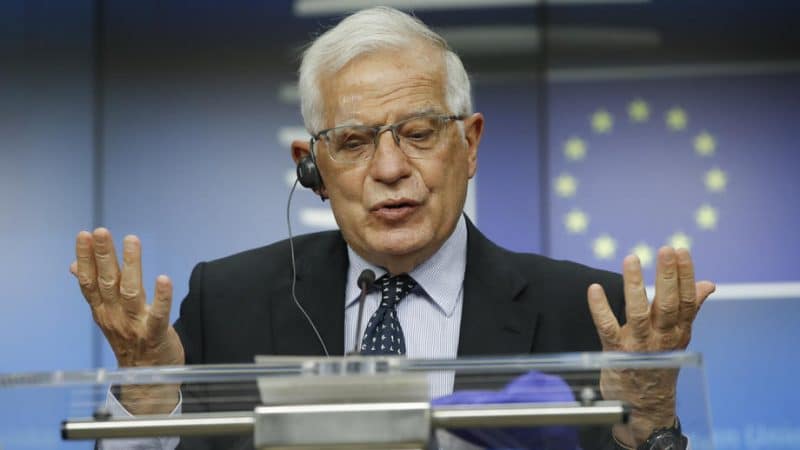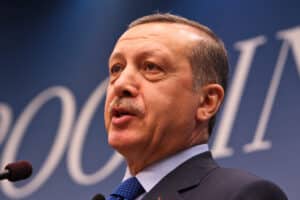The recent Israeli-Palestinian hostilities are now entering the second week, prompting increasing international concern. World leaders and humanitarian organisations have called for an end to the violence. An overview of how key players are responding to the developments:
The European Union
The EU, as usual, is divided. European foreign ministers on Tuesday failed to reach a unified position because Hungary blocked a ceasefire statement, causing only 26 out of 27 EU countries to agree on a formal position.
This forced the EU’s foreign policy chief, Josep Borrell, to issue a call for a ceasefire on his own: “The priority is the immediate cessation of all violence and implementation of a ceasefire. The purpose is to protect civilians to give full humanitarian access in Gaza,” Borrell told reporters.
“We condemn the rocket attacks by Hamas and other terrorist groups on the Israeli territory, and we fully support Israel’s right to defense,” Borrell said. But he also spoke critically of Israel, urging the country “not to proceed with evictions in Sheikh Jarrah.”
Borell said he found Hungary’s objection to the statement “hard to understand.” Budapest is a close ally of the Israeli government and Hungary’s unwillingness is a symptom of the EU’s lack of a coherent foreign policy, and the internal disagreements among EU countries on the Israeli-Palestinian conflict.
EU countries have long been divided over the issue. Belgium, Ireland, Sweden and Luxembourg are most critical of Israel, while countries in Eastern Europe (especially Hungary, Romania and Bulgaria) are in strongest support of Israel. Germany and The Netherlands are also hesitant to criticize Israel, and an Israeli flag was even seen waving over the office of Germany’s governing party.
The French are seeking the more neutral ground and are pushing for a cease-fire. France, which holds some influence with Egypt, is trying to persuade Egyptian leaders to urge Hamas to halt its rocket assaults. President Emmanuel Macron of France said “there needs to be a process for a cease-fire as quickly as possible.” Macron said he was having discussions with President Abdel Fattah al-Sisi of Egypt and King Abdullah “to be able together to see how we make a concrete proposal.”
The United States
US President Joe Biden has also joined calls for a ceasefire, but is blocking efforts at the UN Security Council, having so far rejected three draft statements calling for a ceasefire. France is currently pushing for another resolution, in coordination with Israel’s neighbours Egypt and Jordan. The US is expected to veto again.
The Americans – one of Israel’s strongest allies – have a history of blocking UN efforts on this issue. Over the past five decades, the United States has vetoed at least 53 UN Security Council resolutions concerning Israel. It seems to be sticking to that playbook. Instead, the US emphasises its own diplomatic efforts and prefers to have conversations with Israel take place behind the scenes.
At home, Biden is being increasingly criticized by prominent US progressives such as Bernie Sanders and Alexandria Ocasio Cortez, who have strongly criticized the Biden administration’s support for Israel.
Arab countries
Iran has called on the United Nations and fellow Muslim nations to take action on the “genocidal acts” and “racial cleansing” it says is being committed by Israel, and stresses that Israel must stop attacking Palestine. A top military commander has pledged Iran will stand by Palestinians, and asked the Muslim world to act as one on the Palestinian issue.
Saudi Arabia’s Foreign Minister Faisal bin Farhan al Saud also condemned “flagrant violations” of Palestinian rights, and called on the international community to act urgently. Turkey’s President Erdogan has asked the international community to offer a “strong and deterring response”.
Egypt is allocating $500 million for reconstruction efforts in the Gaza Strip following Israeli airstrikes, with president El-Sisi saying that Egyptian specialists will contribute to rebuilding efforts. El-Sisi has ordered the government to coordinate with Palestinians in Gaza to find out what their needs are. Egypt is a prominent player in the mediation efforts between Israel and the Palestinians, as it is calling for a ceasefire together with Jordan and France.
Solidarity protests
Around the world, solidarity protests with the Palestinians have been organised. Tens of thousands of people have taken to the streets in cities around the world, from New York and London to Cape Town and Amsterdam. Protestors are demanding an end to the Israeli air raids on the Gaza Strip.
Protests in solidarity with Palestine also took place on the Israeli border with Lebanon. Palestinian refugees and Lebanese civilians travelled to the border with Israel on Sunday for the third consecutive day, proudly waving Palestinian flags and banners of the Hezbollah and Amal movements.
Even if world leaders can nudge Israel and Hamas to reach a ceasefire in the region, this would only be a temporary step. The only political solution that can provide security for both sides is relaunching the peace process, which has been in deadlock for years. This can only happen if all parties uphold international law and respect human rights – something that is currently not the case.
Sources:
NewYorkTimes, Politico1, Politico2, Welt.de, AlJazeera1, AlJazeera2, ArabNews, AlJazeera3, AlJazeera4, AlJazeera5, France24, TimesOfIsrael, BBC
Picture: Euractiv
European Union High Representative for Foreign Affairs, Josep Borrell, giving a press conference on 18th of May after Hungary blocks a joint European position on Israeli-Palestinian hostilities.



